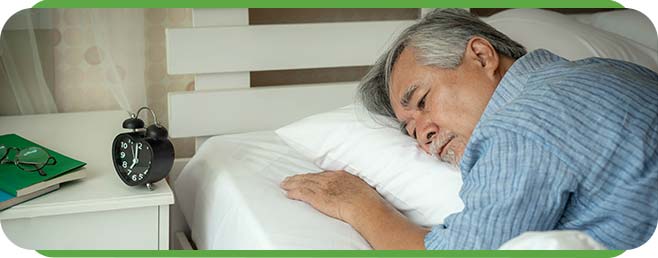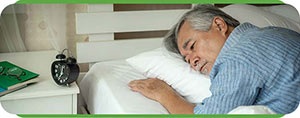What Causes Lack of Sleep?
Is your health suffering due to lack of sleep? Talk to our sleep professionals at Koala® Center For Sleep & TMJ Disorders and get a solution for yourself. For more information call us at one of our clinics today or request an appointment online. We serve patients from all over the USA. Locations in Bloomington IL, Peoria – Dunlap IL, El Paso TX, and Wausau WI.


Table of Contents:
How much sleep do you need by age?
What problems can cause lack of sleep?
How do you treat sleeping problems?
What is the best time to sleep?
Sleep is one of the most important bodily functions, yet countless studies have shown that over half of adults do not spend enough time sleeping. This is not an issue unique to one country or region but is present in all corners of the world. There is a myriad of reasons why so many people lack adequate quality sleep, including physical, psychological, and social factors.
The amount of sleep a person need varies drastically depending on their age. For example, babies require around 16 hours of sleep, while some adults may only need around 7 hours. Some people even need more than 8 hours of sleep each night, especially young children and adolescents. The best way to determine how much sleep you need is to experiment with different amounts of time and discern how you feel, how well you can function, and what works best with your lifestyle.
There are several problems that can affect the quality and duration of a person’s sleep, from work-related stress to medical conditions. Poor nutrition and lifestyle choices are also common culprits for lack of sleep. Other causes may include excessive or irregular sleeping patterns, lack of exercise, and consuming large amounts of caffeine, alcohol, or other substances. Additional factors that can disrupt sleep include illness, injury, or a change in circadian rhythm (the body’s internal clock).
While health problems can cause a lack of sleep, the opposite is also true: lack of sleep can cause health problems. These can range from minor issues to potentially life-threatening medical conditions. Some of the most common sleep ailments can lead to serious health problems. These include sleep apnea, restless legs syndrome, and insomnia. People who are not sleeping well may be more prone to catching a cold or getting sick.
Sleep problems may be treated with lifestyle changes such as sleep hygiene, exercise, and dietary changes, as well as other treatments, including oral appliance therapy and neuromuscular orthotics. Sleep hygiene is the maintenance of proper sleep routines. This includes things such as avoiding caffeine, skipping a late-night snack, or eschewing heavy alcohol consumption. It can also be as simple as getting a good night’s sleep.
Sleep specialists often prescribe treatments such as sleep aids and other therapies to help a person sleep better. For mild sleep issues, a person may be able to self-manage their symptoms with behavioral modification. In more severe cases of sleep problems, a person may need to undergo various treatments and therapies.
The ideal treatment for a sleeping problem depends on what kind of problem it is, its severity, and its chronicity (duration). Treatments for common sleep disorders include:
Sleep Apnea:
– CPAP machines
– Oral Appliance Therapy
– Surgery
– Lifestyle changes
TMJ Disorders:
– TENS (transcutaneous electrical nerve stimulation)
– Custom-made appliance (neuromuscular orthotic)
– Wearing a long term orthotic
– Orthodontic treatment such as crowns or veneers
The best time to sleep is different for every person and depends on several factors, such as age, work schedule, geographical region, how many hours of sunlight per day, and the time of year. However, generally, the evening is the best time to go to sleep as the lower levels of light signal the brain to produce melatonin, the hormone that induces a state of sleepiness. Rather than focusing on the ‘best time to sleep, it is important to go to bed and wake up at the same time every day and consistently practice good sleep hygiene.
If you are experiencing a lack of sleep, come to Koala® Center For Sleep & TMJ Disorders for a professional If you are experiencing a lack of sleep, come to Koala® Center For Sleep & TMJ Disorders for a professional diagnosis and treatment you can trust. We believe that every individual deserves good quality sleep on a regular basis and are proud to serve patients from all across the United States: we have clinics conveniently located in Bloomington, IL; Peoria/Dunlap, IL; El Paso, TX and Wausau, WI. We look forward to serving you!

Additional Services You May Need
▸ KoalaKIDZzz®
▸ Sleep Apnea
▸ Snoring
▸ TMJ Disorder
▸ Fatigue
▸ Sleep Disorders
▸ Weight Loss
▸ CPAP Alternative
▸ Oral Appliances




